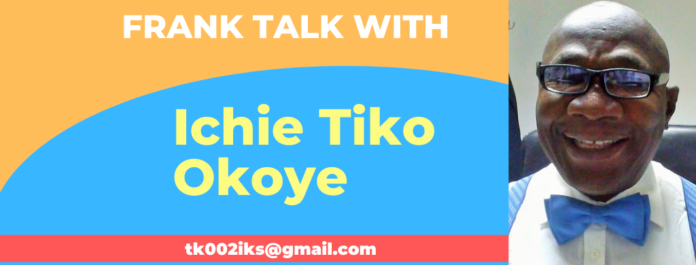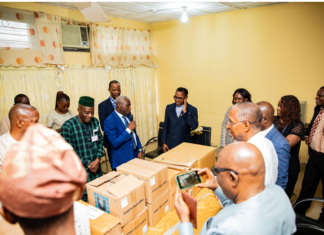The current state of affairs actually gifts Ndigbo a golden opportunity to redefine their politics and forge a new and purposeful leadership.
By Tiko Okoye
- Which way, Ndigbo? (1)
This columnist wrote as many as seven comprehensive essays on “the Igbo Question” between March 2015, when the results of the Presidential Election were announced, and April of the same year. The urgency and importance of the topics being canvassed can be gleaned from the titles of at least three: “2015 elections: Present continuous,” “2015 elections: Whither Ndigbo?” and “Open letter to Ndigbo.” My core message was that it wasn’t too early for us to start strategizing for 2023, as I correctly surmised – unlike most of us in the South-East – that Muhammadu Buhari would easily secure a second term.
Reactions to my core message were expectedly fast and furious. But even for someone who had become very familiar with – and the object of IPOB-induced hate speech on social media platforms, I was still completely taken aback by how vile, caustic and bitter most of the comments were. It soon became crystal-clear to me that they were misinterpreting my stance as a disagreeable attempt to blame Ndigbo for making poor political choices.
My rabid traducers equally perceived my core message as a highly unwelcome proposition for them to start delivering a block vote to the All Progressives Congress (APC) in future elections rather than putting all our eggs in the Peoples Democratic Party (PDP) single basket, in order to make our quest for the presidency the odds-on favourite.
An overwhelming majority of those who reacted to my essays ‘cautioned’ me to keep my thoughts strictly to myself as they were more interested in ‘Restructuring’ – with the option of seceding if it isn’t possible. I feel a great sense of fulfilment that the same folks are now very, very OBIdiently involved! Like the English aphorism states: “It is better late than never.”
READ ALSO: Ndigbo: Caught betwixt and between in Nigeria (1)
Ndigbo: Caught between and betwixt in Nigeria (2)
Ndigbo: Caught betwixt and between in Nigeria (3)
Ndigbo: Caught betwixt and between in Nigeria (4)
Since what I wrote nearly six years ago are still as politically relevant for Ndigbo today as at then, I’m taking the editorial licence to showcase a few excerpts in order to position the current discourse in proper perspective:
The outcome of the recently conducted 2015 presidential election was both predictable and predicted, but majority of Ndigbo simply chose to be driven by sentiments and parochialism rather than stone-cold logic and vested interests. I must confess that I was considerably alarmed by the fact that virtually all those who hurled unprintable expletives at me for having the ‘animal boldness’ to ask Ndigbo not to hang the entire fate of the tribe on the puny shoulder of an individual were below 30 years of age – a clear evidence of a lack of deep intellectual content among our youth!
There are those who contend that Ndigbo should be left alone to determine the direction of their progress and the pace with which they want to arrive there. My chief concern is that this attitude is borne out the Igbo man’s preference for illusions rather than realities – no thanks to the lingering fallouts of the devastating civil war and the orchestrated vicissitudes that have become our lot in many parts of the country.
But believe me when I say that that the challenges Ndigbo are currently facing, and new ones bound to arise along the way, cannot possibly be solved by peddlers of emotionalism and cynicism with closed-up minds; rather we urgently need men who can dream of things that never were. The times call for a clear paradigm shift in the character of Igbo leadership; it should consist of men and women of great vision and imagination and not daydreamers and political merchants.
My point of departure from the stance of a clear majority is where they equate the ‘prudence’ I canvass to the ‘appeasement’ they clearly misinterpret my point of view to represent. The gulf between both concepts is as wide as that between day and night. There’s really nothing wrong with being in the opposition and Ndigbo certainly have no apologies to render to anybody for how they voted in the last elections.
Politics is a game of numbers and my greatest concern is that Ndigbo are displaying crass naivety by hobnobbing with those who cannot really help our larger interests while antagonizing those we ought to collabo with to realize our group objectives. It is a trite saying that what matters in politics is permanent interests and not permanent friendship.
The current state of affairs actually gifts Ndigbo a golden opportunity to redefine their politics and forge a new and purposeful leadership.
Ndigbo must, therefore, not shilly-shally in taking any corrective action deemed necessary to guarantee the greatest good of the greatest number of our people whenever the need may arise. As the great Chinese diplomat and educator once counselled, “A road that does not lead to other roads is called a dead-end and always has to retracted, unless the traveller chooses to rust at the end of it.”
For us to make any headway, we must collectively shed our burgeoning ‘trader mentality.’ The obnoxious notion that an Igbo man would sell his own mother for money must be effectively addressed otherwise no one would accept us as honest brokers on an equal basis. Ndigbo must now begin to despise and shun all those who pride themselves as voyeurs of the politics of mercantilism. Consequently, the new pan-Igbo organization must give Igbo youth a pride of place and make them inculcate the culture of intellectualism and objective thinking.
Let me categorically state without any fear or favour that Ohaneze totally failed Ndigbo. The current leaders of the supposed pan-Igbo organization were arguably more interested in what was in it for them than what was in it for the greatest number of Ndigbo. Yes, they can argue that their hands were tied because Ndigbo have already decided that they would deliver a block vote to one individual. But why are they leaders? Leaders are meant to lead from the front because the tail does not wag the dog. They must be guided by their courage of convictions distilled in the furnace of relevance and materiality and not the flotsam of convenience.
Even at the risk of sounding like a broken record and attracting the ire of noisy critics who believe that I’m butting into very strong traditional headwinds, let me denounce for the umpteenth time, our propensity to collective our ‘marginalisation’ whenever we fail to achieve a randomly-set objective. Whether real or not, our interests and legacies are better served when we figuratively collectively put our shoulders to the wheel to improve our situation ourselves, without help from chameleonic external parties, like we have been able to achieve in other areas of human endeavour – except in politics – since the end of the civil war.
I once attended a symposium organised by a Houston-based newspaper outfit just after the 1999 elections in Nigeria. The owners of the media house are of Igbo extraction, as are over 95% of the attendees. After the panellists had distilled what was a well-received communique, someone in the audience requested permission to make a few remarks. His contribution was very short:
“Why do you Ibos always cry of marginalisation? Who’s really marginalising who? You not only constitute the second largest ethnic nationality in every state, local government area, town and hamlet outside your native South-East geopolitical zone, but you’ve also locked up the commercial and business sectors in a vice-like grip. Don’t you know that what you’re constantly whining about is called ‘political marginalisation’ but have you spared a thought for the ‘economic marginalisation’ you’ve foisted on the rest of us in Nigeria?”
You don’t need rocket science to realise that the obviously non-Igbo ‘commentator’ had stirred up a real hornets’ nest with his table-shaking remarks among such a highly biased crowd. But he knew quite well that in daring to enter the lion’s den, his right to free speech was ably protected under the law, quite unlike if he had done so in an environment in which Nigerian netizens hold sway. And as outlandish as it may seem, the very notion that one man’s freedom fighter might just be another man’s terrorist – so to speak – got me really thinking hard. The germane question to me was – and still is – why Ndigbo straddle the field of commerce and business like giants, only to cower and whimper like Lilliputians when it comes to politics.
My thoughts with respect to our missing-in-political-action, coupled with well-considered suggestions of how we, Ndigbo, must do in order to take our rightful position in the Nigerian polity, will be comprehensively treated next week as the curtains finally come down on the series.












